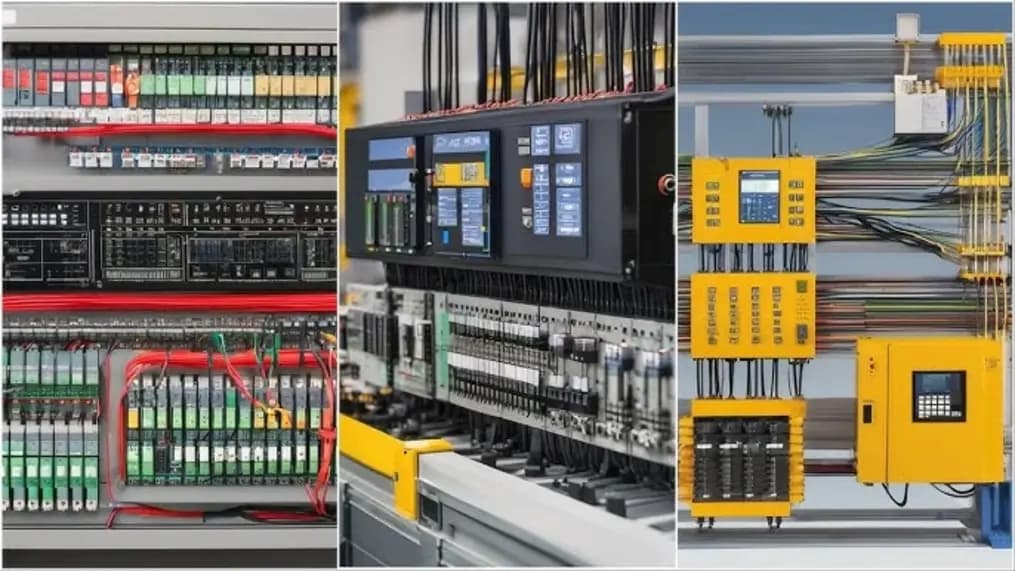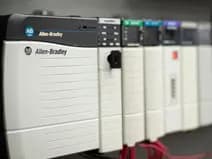Top PLC Brands and Leading Automation Companies in 2025

Freelance copywriter and editor

In today’s rapidly evolving industrial landscape, PLC companies play a pivotal role in automation processes across various sectors. Programmable Logic Controllers (PLCs) are specialized computers designed to automate manufacturing processes, improve efficiency, and reduce downtime. From assembly lines to robotic systems, PLCs are essential in keeping industries running smoothly. As automation continues to advance in 2025, understanding the major PLC brands and what they offer is crucial for businesses seeking to optimize operations.
What Are PLC Brands and Why Do They Matter?
Types of PLC Manufacturers in the Market
Small-scale vs. Large-scale Automation Needs
- Small-scale PLCs are designed for simple, standalone machines or smaller assembly lines. They are compact, affordable, and easy to program.
- Large-scale PLCs are built for comprehensive automation systems. They can manage entire production floors or large industrial processes with hundreds of I/O points.
General-purpose PLCs vs. Industry-specific PLCs
- General-purpose PLCs are versatile and used across multiple industries, from automotive to food processing.
- Industry-specific PLCs are specialized for sectors such as oil & gas, pharmaceuticals, or water treatment plants, offering tailored functionalities and compliance with industry standards.
Budget-friendly vs. Premium PLC Brands
- Budget-friendly PLC brands deliver essential features at an affordable price, ideal for startups or smaller projects.
- Premium PLC brands offer advanced capabilities like enhanced communication protocols, redundancy, and cybersecurity features, suitable for complex, critical operations.
Leading PLC Automation Companies

Here’s an overview of the world’s most popular PLC manufacturers and their contributions to automation in 2025:
Allen-Bradley
- Key features: Extensive product line with modular designs, superior I/O options, high-speed processing, and advanced safety controls.
- Benefits: Seamless integration with Rockwell's software ecosystem (RSLogix/Studio 5000), strong technical support, and robust security.
- Pricing: Allen-Bradley PLC types are known for their premium quality, with compact models starting at around $1,000 and prices increasing for more advanced system configurations.
- Products: CompactLogix, MicroLogix, ControlLogix series.
Siemens
- Key features: Integrated engineering with TIA Portal, strong networking capabilities, and scalable designs.
- Benefits: Highly reliable in harsh environments, wide availability, and strong compatibility with other Siemens automation products.
- Pricing: Siemens offers mid-premium pricing, starting at around $800 for basic models.
- Products: SIMATIC S7-1200, S7-1500, and ET 200 series.
Mitsubishi Electric
- Key features: Fast processing speed, compact design, and energy-efficient systems.
- Benefits: User-friendly programming with GX Works3, cost-effective solutions for both small and large-scale applications.
- Pricing: Generally budget-friendly, with entry-level models starting at $500.
- Products: MELSEC iQ-R, iQ-F, FX5U series.
Schneider Electric
- Key features: EcoStruxure platform compatibility, good cybersecurity, and excellent modularity.
- Benefits: Easy integration with IoT platforms, scalable from simple to complex operations.
- Pricing: Mid-range to premium pricing, starting from around $700.
- Products: Modicon M221, M241, and M580 series.
ABB
- Key features: High-speed processors, broad communication protocols (Ethernet/IP, Modbus), and advanced redundancy options.
- Benefits: Ideal for large, critical infrastructure projects requiring high availability.
- Pricing: Premium pricing tier, starting at around $1,200.
- Products: AC500, AC500-S Safety PLCs.
Omron
- Key features: Compact footprint, fast cycle times, and integrated safety features.
- Benefits: Easy integration with Omron sensors and robotics, highly reliable.
- Pricing: Competitive pricing, with basic models starting at $400.
- Products: Sysmac NX1P2, CP1E, CJ2 series.
Keyence
- Key features: Ultra-fast scan times, intuitive programming interface, and built-in networking.
- Benefits: Minimal setup time, compact models with a high I/O density.
- Pricing: Mid-range pricing starting at $600.
- Products: KV-8000, KV Nano series.
Wago
- Key features: Compact design, compatibility with multiple communication standards (EtherCAT, Modbus TCP), and decentralized control.
- Benefits: Energy-efficient and cost-effective for distributed automation projects.
- Pricing: Affordable pricing, with models starting at $500.
- Products: PFC200, WAGO-I/O-SYSTEM 750 series.
Choosing the Best PLC Brand for Your Industrial Automation Needs
- Industry requirements: Heavy industries like oil & gas or automotive often require premium, rugged PLCs, while packaging or food processing may benefit from compact, lower-cost models.
- Programming language support: Ensure the PLC supports IEC 61131-3 languages such as ladder logic, structured text, or function block diagrams, depending on your team’s expertise.
- Scalability and expansion options: Choose a brand that offers modularity and future-proof solutions as your automation needs grow.
- Technical support and availability: Access to local support, spare parts, and a knowledgeable vendor network is essential to minimize downtime.
Conclusion
FAQ
Latest Articles




If you didn't find the automation part you were looking for, our support team is here to help. Just contact us, and we'll do our best to source the exact part you need. We're committed to meeting your needs and ensuring your satisfaction.
Contact Us Now